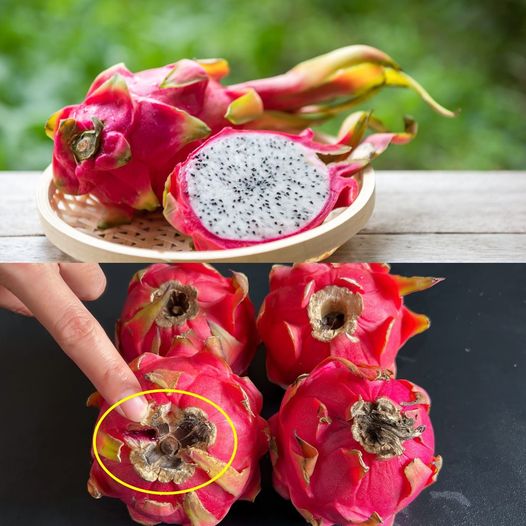ADVERTISEMENT
1. Overly Soft and Spongy Dragon Fruit
While a slight give under gentle pressure indicates ripeness, a dragon fruit that feels overly soft or spongy is past its prime. Such a texture suggests that the fruit may be overripe or has begun to deteriorate inside, which could lead to a mushy and unpleasant eating experience.
2. Dragon Fruit with Dry, Brown Tips
The tips of the dragon fruit’s “scales” should be relatively vibrant and green. If you encounter dragon fruit with dry, brown tips, it’s a sign that the fruit has been sitting out for too long and may not be as fresh as you’d like. Freshness is key to enjoying the full flavor profile and nutritional benefits of dragon fruit.
3. Fruit with Visible Bruises or Blemishes
While minor surface flaws are often cosmetic and don’t impact the fruit’s interior quality, significant bruises, blemishes, or signs of damage can indicate underlying issues. Bruised fruit may have compromised texture and flavor, making it less enjoyable to eat.
ADVERTISEMENT
